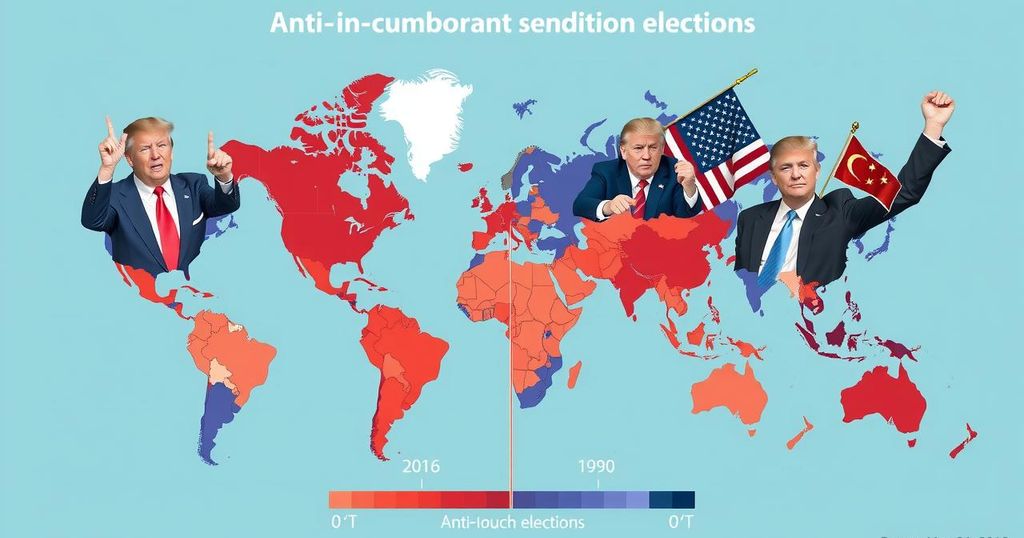In 2024, a significant global anti-incumbent wave resulted in the removal of numerous leaders and political parties, highlighting rising public dissatisfaction driven by social media. Successful retention of power by some incumbents depended on economic conditions, illustrating the need for governments to engage effectively with voters and create hopeful futures. A focus on economic growth and collaboration with innovative thinkers is essential for restoring trust in democratic institutions and promoting active citizen participation.
In the turbulent political landscape of 2024, a significant global anti-incumbent wave emerged, leading to the ousting of established leaders and parties across various nations. Notable events included the defeat of Senegalese President Macky Sall in March and the loss of South Africa’s African National Congress majority in June. The Labour Party’s victory in Britain’s general election later that summer marked the end of the Conservative Party’s long-standing rule. This trend extended to Japan, where the ruling Liberal Democratic Party lost its majority, and France, where Prime Minister Michel Barnier was ousted in a no-confidence vote. The causes for this wave of incumbents losing power may be linked to rising public dissatisfaction, intensified by the pervasive influence of social media. As studies indicate, increased internet access often correlates with heightened distrust in government and exacerbation of political polarisation, providing fertile ground for confrontational rhetoric.
However, while social media strengthens the presence of far-right populism, recent elections showed that established parties can still prevail, albeit with diminished power. Countries such as Spain and Ireland successfully retained their leaders under favorable economic conditions, while Germany faced a sharp contraction in its economy, leading to political instability. The evidence indicates that governments must refine their social media engagement to connect effectively with voters’ concerns and aspirations.
Political leaders must prioritize restoring public trust by concentrating on economic growth and citizens’ empowerment. A comprehensive study of populism illustrates that socioeconomic factors, including unemployment and budget cuts, significantly shape public perception of government. This underscores why leaders who manage the economy effectively, as seen in Spain and Greece, can garner support.
Moreover, it is imperative for political leaders to envision hopeful futures beyond mere crisis management, addressing ongoing challenges such as rising living costs and societal disillusionment. Historical precedents, such as Franklin D. Roosevelt’s New Deal, exemplify how visionary governance during challenging times can lead to transformative national policies. By engaging with innovative thinkers in all sectors, leaders can construct a politics of hope that resonates with the electorate’s desires for a pragmatic and empowering governance.
The global political climate in 2024 has been characterized by significant anti-incumbent sentiments, resulting in the removal of numerous political leaders from positions of power. Citizens have shown increasing dissatisfaction with their governments, driven in part by pressing economic conditions and weakened trust exacerbated by social media’s influence. Historical political patterns suggest that the interplay between public sentiment and economic performance has substantial implications for electoral success, necessitating a proactive and hopeful approach from political leaders. Understanding the motivations behind electoral change is crucial for leaders aiming to restore faith in democratic institutions and foster future growth.
The political upheavals experienced in 2024 highlight a critical juncture for leaders worldwide. To garner public trust and address rampant socio-economic challenges, governance must pivot from mere crisis management to cultivating aspirations for a hopeful and empowered future. By leveraging social media for meaningful engagement, focusing on economic development, and collaborating with forward-thinking individuals, political leaders can aspire to rebuild a politics of hope that resonates with citizens’ urgent desire for positive change and active participation in their governance.
Original Source: www.aspistrategist.org.au






